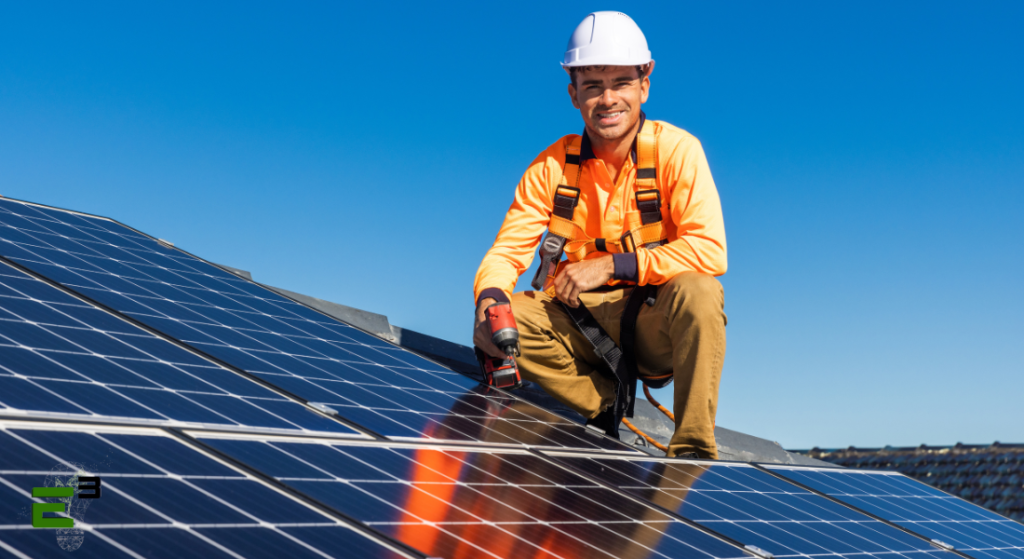Clean energy is derived from renewable and sustainable sources that do not emit greenhouse gases or pollutants during generation. Among the various forms of clean energy, solar energy stands out as one of the most promising and widely adopted worldwide. Solar energy is obtained through the conversion of sunlight into electricity using photovoltaic solar panels, representing an effective solution to mitigate the environmental impacts caused by fossil fuel burning and contribute to the transition to a more sustainable and renewable energy matrix.

The Importance of Access to Clean Energy for Low-Income Communities
Access to clean energy, such as solar energy, is crucial for low-income communities for a variety of reasons. Firstly, clean energy provides a reliable and affordable source of electricity, enabling these communities to meet their basic needs for lighting, refrigeration, communication, and healthcare. Many of these communities currently rely on polluting energy sources, such as diesel generators or kerosene, which are expensive, harmful to health, and have a negative impact on the local environment.
Moreover, access to clean energy can drive economic and social development in these communities, creating local job opportunities, stimulating entrepreneurship, and promoting education and technological development. For instance, the installation and maintenance of solar photovoltaic systems can generate local employment in the installation, maintenance, and operation of these systems, empowering community members with valuable technical skills and providing a sustainable economic boost.
In summary, access to clean energy, especially solar energy, is essential for improving the quality of life and well-being of low-income communities, promoting sustainable development, social equality, and environmental protection. Investing in initiatives that expand access to these energy sources is crucial to building a more just, prosperous, and sustainable future for all.
$7 Billion Allocated by US for Solar Power
On Monday (22), United States President Joe Biden will mark Earth Day with an announcement of $7 billion in incentives for residential photovoltaic projects. The goal is to provide nearly 1 million low-income households with access to clean and renewable energy across the American territory.
The allocated amount is included in Biden’s climate change law, also known as the IRA (Inflation Reduction Act) – which aims to create over 200,000 green jobs and save around $400 per year for participating families, according to information from the White House.
Beneficiaries include 60 state and local agencies and non-profit organizations with programs to assist residents of poor communities in adopting solar energy and saving on energy bills.
The program aligns with Biden’s goal of directing 40% of federal clean energy investment benefits to underserved communities. The projects are expected to reduce emissions by 30 million metric tons of carbon dioxide.
During his visit to the state of Virginia, President Biden will also announce the opening of applications to join the American Climate Corps – a program aimed at preparing young people for jobs in climate-related industries.
In the United States, residential solar energy has long been seen as a technology that is difficult for low-income Americans to access due to its high initial installation costs.
Explore the IRA: Understanding the Inflation Reduction Act
The Inflation Reduction Act signifies a substantial commitment to sustainable energy, providing strategic incentives to facilitate the shift towards clean and decarbonized living. This comprehensive initiative includes a range of residential energy solutions designed to streamline the adoption of clean energy while offering financial benefits. These solutions encompass upfront discounts, tax credits, and low-interest financing options, creating a substantial funding pool accessible to households of all income levels. Regardless of financial status, these funds empower individuals to transition essential appliances – such as cars, home heating and water systems, cooking appliances, clothes dryers, and power sources – to electric alternatives.
Essentially, the Inflation Reduction Act functions as a tailored, cost-free resource to support individuals in their transition to electric-powered alternatives. This resource serves as a financial aid for replacing outdated, fossil fuel-dependent appliances with new, clean electric models within the coming decade. While the acronym “IRA” may evoke similarities to Individual Retirement Accounts, it symbolizes the collective investment made by individuals and the federal government in advancing a cleaner, greener future.
The concept of “electrifying everything” involves replacing current machines reliant on fossil fuels, such as gas-powered vehicles, furnaces, water heaters, kitchen stoves, and dryers. Additionally, the installation of new electric equipment like solar panels, home storage batteries, and upgraded electrical infrastructure may be necessary. There’s no obligation to complete these upgrades all at once; individuals can wait until their existing equipment requires replacement before making the transition. The IRA serves as a financing mechanism, allowing households to gradually adopt full electric reliance supported by renewable energy. The allocated funds can be utilized over a ten-year period, enabling individuals to electrify their homes at a pace that aligns with their needs and preferences.
In conclusion, the allocation of this funding by the government for solar energy represents a significant step towards a more sustainable and resilient future. By offering strategic and accessible incentives, the program aims to democratize access to clean energy, promoting widespread adoption of renewable technologies. In addition to driving the transition to a cleaner energy matrix, this initiative also has the potential to create green jobs, strengthen the economy, and reduce greenhouse gas emissions. With government support and public engagement, we can make the most of this opportunity to build a more prosperous and sustainable future for future generations.



